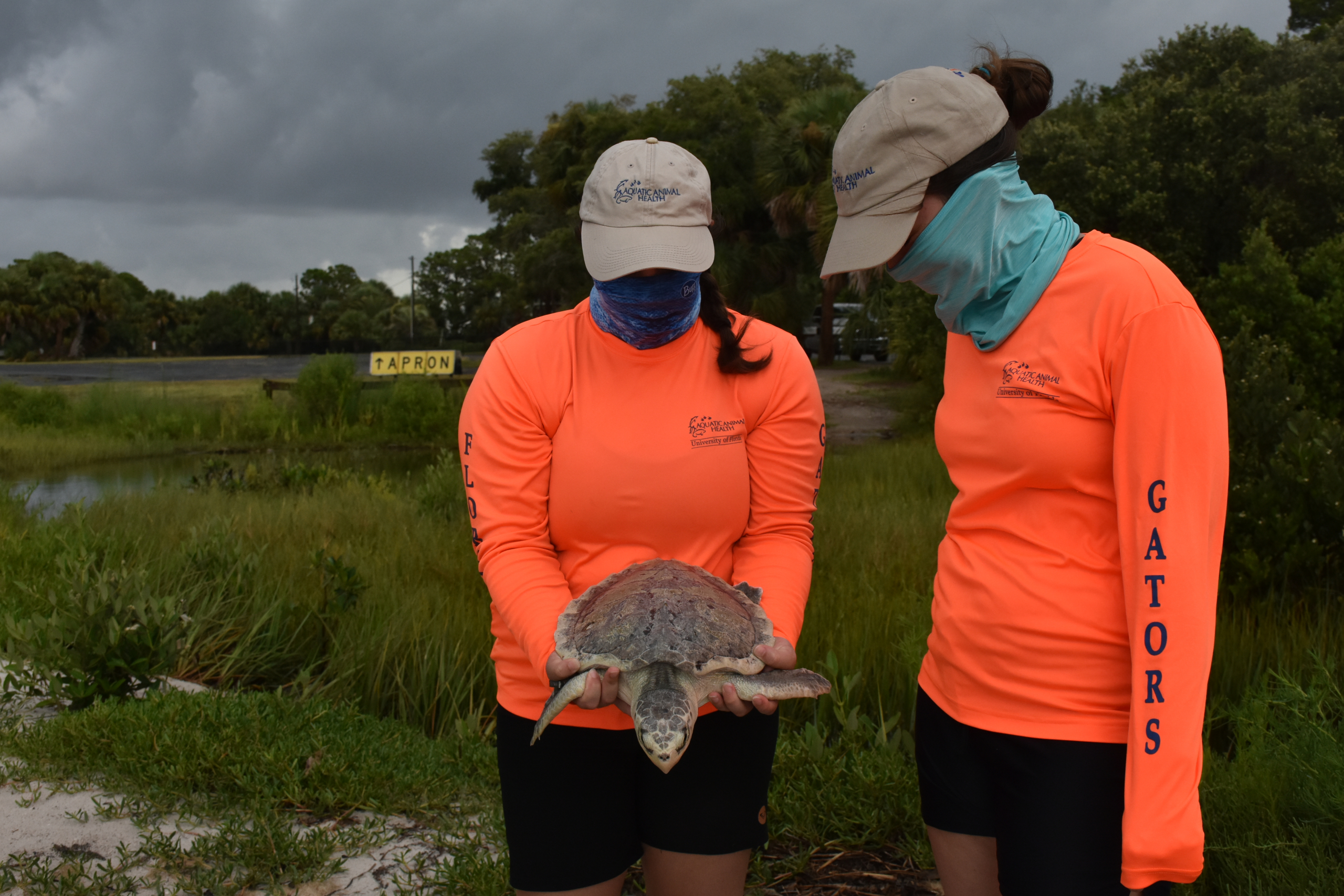Aquatic Animal Health adds new graduate certificate

Rescuers from the UF Marine Mammal Stranding Network assisted with this sea turtle’s release back into the wild in July after treatment at Clearwater Marine Aquarium to remove a fish hook from its throat.
The UF College of Veterinary Medicine’s Aquatic Animal Health program has added a new graduate certificate to its educational options.
“Some of the students in our online courses had asked whether these courses might be able to culminate into some kind of degree,” Larkin said. “We weren’t ready to offer an online master’s degree program yet, so we are starting with a certificate.”
Approval for the new endeavor at the college and university levels took about a year, and the business plan to offer the certificate to non-UF students from across the country and internationally took another 10 months, she said, adding that all approvals were procured this past spring, which is when the program officially started.
The college currently offers several online programs to students outside of the UFCVM. The shelter medicine program offers a graduate-level certificate program as well as an M.S. degree online, and the forensic medicine program offers M.S. degrees in veterinary forensics and wildlife forensics.
No other aquatic health-related certificates are offered through the college that cover fish, invertebrates, marine mammals and other aquatic species, Larkin said, and no other program similar in nature is currently available anywhere else in the country in a fully online format.
“We collaborate with the UF Institute of Food and Agricultural Sciences, or UF/IFAS, and the department of fisheries and aquatic sciences,” she said, adding that the fisheries department has other online certificates and an online M.S. option. Some of the Aquatic Animal Health program’s online courses are also electives within these programs.
Students participating in the new certificate program will focus on developing a strong foundation in aquatic animal care and conservation, enhancing their competitive edge for future careers in aquatic professions, Larkin said.
“While professions in environmental health, aquaculture and research are growing, opportunities to study aquatic animals are somewhat limited,” she said. “Therefore, this certificate will allow students to develop a broad foundation of knowledge in areas of aquatic animal care and conservation, including marine mammals, aquatic reptiles, amphibians, birds, fish and invertebrates.”
The program is currently working to expand its course offerings, with a marine mammal biology course currently in the review process, along with a pre-veterinary certificate, also currently in the review and approval process, Larkin said.

















